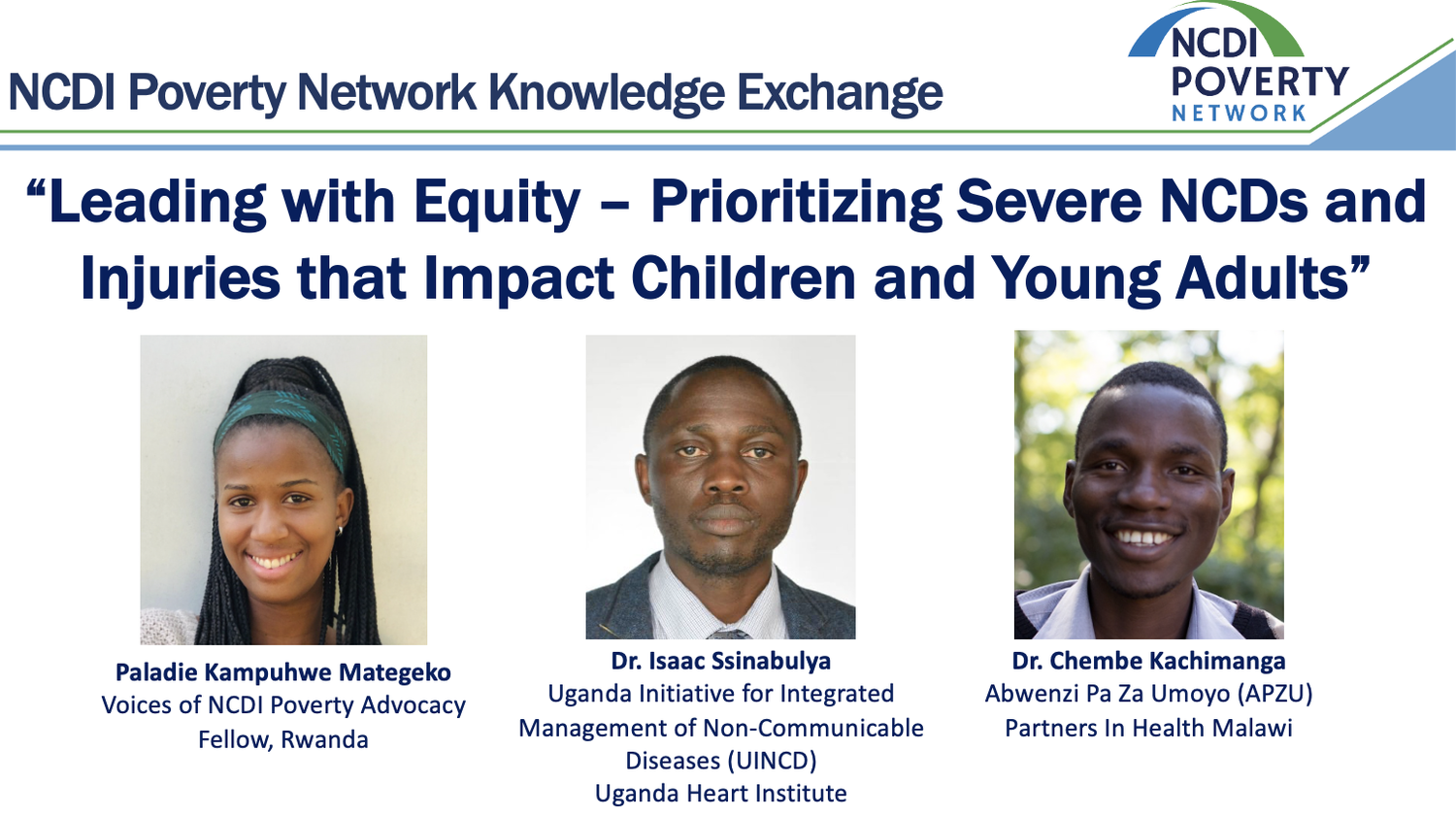New Knowledge Exchange Series Kicks Off
The NCDI Poverty Network’s new Knowledge Exchange series kicked off on 30 March with over 80 participants meeting online to discuss the importance of prioritizing severe NCDs and injuries that impact children and young adults living in extreme poverty as a key to achieving universal health coverage.
The Knowledge Exchange series provides a forum for members of national NCDI Poverty Commissions, people living with noncommunicable diseases and injuries, and technical, policy, and advocacy experts who are members or supporters of the NCDI Poverty Network to share experiences and discuss how to best address the burden of severe NCDIs that cause 560,000 avoidable deaths every year before the age of 40 among the poorest billion.
The event featured a panel discussion in which the audience could ask questions. Invited speakers included: Uganda NCDI Commission Co-Chair Isaac Ssinabulya of the Uganda Initiative for Integrated Management of Non-Communicable Diseases (UINCD) and the Uganda Heart Institute; Dr. Chembe Kachimanga of Partners in Health Malawi/Abwenzi Pa Za Umoyo; and Voices of NCDI Poverty Advocacy Fellow Paladie Kampuhwe Mategeko from Rwanda.
The discussion led to several key takeaways, notably that the severe NCDIs that disproportionally affect poor children and young adults – such as type 1 diabetes, rheumatic heart disease, and sickle cell disease – are generally fatal if left untreated and cannot be prevented by modifying behavioral risk factors like unhealthy diets or lack of exercise. Thus leading with equity requires that NCDI services prioritize treatment as well as prevention. The group agreed that by involving patients and advocates in policy discussions, countries can ensure that NCDI services are equitable.
Participants addressed central questions such as how severe non-communicable diseases and injuries (NCDIs) relate to poverty, why these conditions are important to address, how national NCDI Poverty Commissions have identified severe NCDIs of poverty in their countries and recommended policies and programs to address them, and why it is important to tackle severe NCDIs through a health system lens rather than risk factor mitigation alone.
French and English simultaneous interpretation is offered at Knowledge Exchange events to facilitate participation from around the world.
The next meeting of the Knowledge Exchange series will be held on 8 June.

